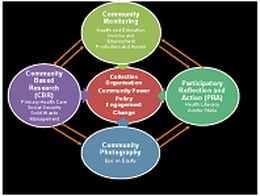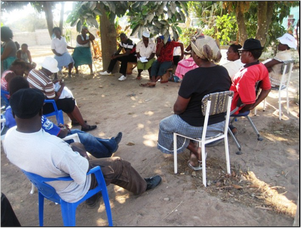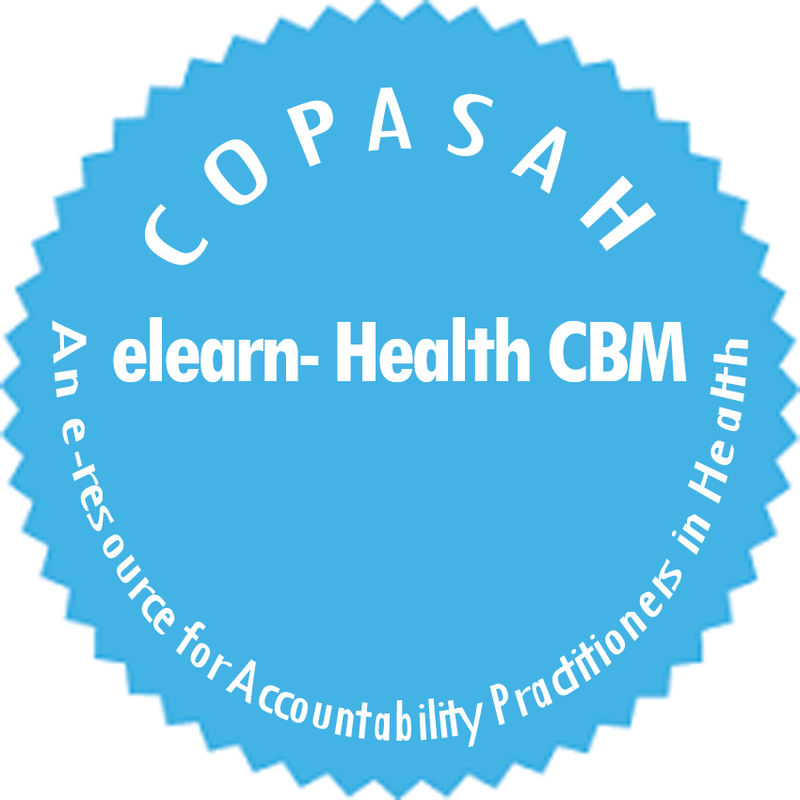
|
|
Strengthening Community Capacities, Evidence and Voice in Promoting Accountability and Social Justice in Health in Zimbabwe
Training and Research Support Center (TARSC)
|
Barbara Kaim
|
|
Background
What motivates us? “This is based on our understanding that knowledge and evidence of conditions at community level is essential to advancing socioeconomic well being and that the systematic processes that produce marginalization and inequality also need to be challenged.” TARSC’s objective is to provide training, research and s u p p o r t s e r v i c e s t o communities, community b a s e d g r o u p s a n d n o n - g o v e r n m e n t a l organisations to develop capacities, networking and action and to interact with the state and private sector on areas of social policy and social development. We work with membership based civil society and public sector institutions to use a spectrum of tools for building knowledge linked to voice and experience of affected communities and actors, including participatory action research and community b a s e d r e s e a r c h a n d monitoring. This is based on our understanding that knowledge and evidence of conditions at community level is essential to advancing socioeconomic well being and that the systematic processes that produce marginalization and inequality also need to be challenged. |
Different approaches but one goal
We recognize that knowledge and action is built from a range of approaches that are determined by context.
We recognize that knowledge and action is built from a range of approaches that are determined by context.
- Community Monitoring: We use a sentinel site surveillance approach to gather evidence on key areas of social and economic rights such as health, education, income, employment, production, gender and food security. These issues are defined by civil society as priorities for state policy and practice and for watching private sector activities . Community monitors living in sentinel sites are drawn from membership based civil society.
- Community Based Research: We have deeper rounds of community research on specific focused issues, s u c h a s w a s t e management, primary health care, or social security. These issues reflect the concern of civil society or their members or were raised during the monitoring process. The research explores what should or could be done on the specific issue to feed into discussions and negotiations on actions or policies that could be taken as a result of the findings. The people gathering the evidence are more directly involved in the dialogue around the evidence and the actions that follow it.
- Participatory Reflection and Action: We do work that gathers and uses evidence through participatory action research (PAR) in which community members affected by problems actively participate in gathering and reflecting on their own experience and evidence to identify actions, particularly the actions people can take themselves to produce change. For instance, in youth reproductive health issues (Auntie Stella) and through the Health Literacy Programme where we are raising direct action such as how communities and health workers can work more effectively together in responding to community health needs.
- Community Photography: We have used community photography within the PAR work as another form of bringing community level evidence to the levels where it can influence local, national or regional policy dialogue, e.g., through the Eye on Equity Work within EQUINET.
Lessons Learnt
The conditions that demand various forms of community monitoring relate to contexts of economic disparities, poor control over productive capacities and resources, dwindling state services and political uncertainty. Yet, these are also the contexts and conditions that disable this work! The pivotal factors which turn these potentially disabling factors into facilitators depends on the communities and their civil society organisations, specifically their leadership and levels of democracy, their capacity to support social dialogue and action, their consciousness and perspective, and their ability to forge trust and a sense of solidarity.
As a result of these processes, communities and civil society have managed to
These actions have had a positive impact on government responsiveness to specific issues, improvements in public services especially at community level, and increased empowerment of citizens in engaging with state actors. These approaches have the potential to bridge local issues into national policy dialogue.
At the same time, TARSC recognizes that local level engagement and actions may not address structural determinants, building power around less fundamental determinants that are more accessible to local action while leaving key areas of state and private sector performance unchanged.
The conditions that demand various forms of community monitoring relate to contexts of economic disparities, poor control over productive capacities and resources, dwindling state services and political uncertainty. Yet, these are also the contexts and conditions that disable this work! The pivotal factors which turn these potentially disabling factors into facilitators depends on the communities and their civil society organisations, specifically their leadership and levels of democracy, their capacity to support social dialogue and action, their consciousness and perspective, and their ability to forge trust and a sense of solidarity.
As a result of these processes, communities and civil society have managed to
- raise specific problems, e.g., unfair distribution of maize grain;
- raise the profile or prioritization of issues in national policy documents and through policy debates, e.g., on primary health care in the National Health Strategy;
- raise information and perspective on specific issues, e.g., responsibilities for tackling solid waste in local areas; and
- raise direct action, such as how communities and health workers plan for work in the catchment areas of health centers.
These actions have had a positive impact on government responsiveness to specific issues, improvements in public services especially at community level, and increased empowerment of citizens in engaging with state actors. These approaches have the potential to bridge local issues into national policy dialogue.
At the same time, TARSC recognizes that local level engagement and actions may not address structural determinants, building power around less fundamental determinants that are more accessible to local action while leaving key areas of state and private sector performance unchanged.
|
|
“This is based on our understanding that knowledge and evidence of conditions at community level is essential to advancing socioeconomic well being and that the systematic processes that produce marginalization and inequality also need to be challenged.”
“The pivotal factors which turn these potentially disabling factors into facilitators depends on the communities and their civil society organisations, specifically their leadership and levels of democracy, their capacity to support social dialogue and action, their consciousness and perspective, and their ability to forge trust and a sense of solidarity.”
ABOUT AUTHORS
Barbara Kaim is a Steering Committee member of COPASAH and also, Programme Manager at Training and Research Support Centre, Zimbabwe
To know more about the work done by TARSC, please CLICK HERE or mail at [email protected]
Barbara Kaim is a Steering Committee member of COPASAH and also, Programme Manager at Training and Research Support Centre, Zimbabwe
To know more about the work done by TARSC, please CLICK HERE or mail at [email protected]










